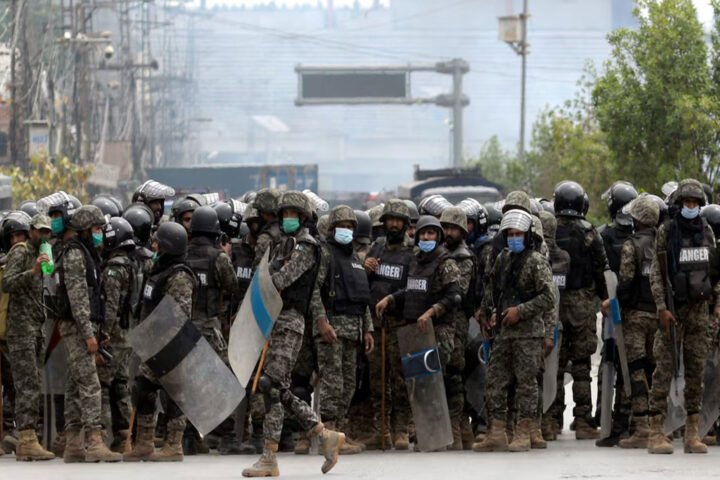Tensions Rise Over Alleged U.S. Naval Deployments in Caribbean
In recent days, Venezuela has found itself at the center of escalating geopolitical tensions, fueled by unverified reports of a U.S. military deployment near its territorial waters, prompting serious concerns about potential intervention. The situation has intensified as speculation grows regarding the U.S. administration’s intentions under President Donald Trump, particularly given a previous offer of a $50 million reward for information leading to the capture of President Nicolas Maduro, reports 24brussels.
News agency Reuters has played a prominent role in amplifying these tensions, suggesting the imminent presence of three U.S. Navy guided-missile destroyers in the area, under the pretext of countering threats posed by drug cartels. This development reportedly involves a substantial contingent of 4,000 personnel, including sailors and Marines, along with surveillance aircraft and an attack submarine deploying in the region.
However, subsequent investigations revealed significant discrepancies in these claims. Evidence surfaced contradicting the idea of an imminent U.S. naval operation, with reports indicating the ships in question were either deployed elsewhere or not operational. This misrepresentation has raised questions about the reliability of the information presented by Reuters, which has been criticized for failing to adhere to basic journalistic standards, particularly regarding source verification.
On August 19, Reuters reported the imminent deployment of USS Gravely, USS Jason Dunham, and USS Sampson, implying aggressive military maneuvers. Yet, shortly after, fact-checkers from La Tabla highlighted that these vessels were either in different waters or not available for such operations. The ensuing confusion and alarm were inadvertently fueled by these claims, despite the lack of substantive evidence to support them.
The fallout from these reports has been significant, leading to heightened rhetoric from U.S. officials, including White House Press Secretary Karoline Leavitt. With public perception swayed by the sensational nature of the reports, political actors in Washington seized upon the moment to intensify their discourse against the Maduro administration.
In a subsequent report on August 20, Reuters suggested the deployment of amphibious vessels, including the USS San Antonio and USS Iwo Jima, further exacerbating the climate of uncertainty. Shortly after the report, it was confirmed that USS Iwo Jima had returned to its home port, undermining Reuters’ narrative yet again.
This situation underscores a troubling trend in media reporting, where critical information is often manipulated or distorted to fit specific political agendas, raising concerns about journalistic integrity. The allegations surrounding U.S. military intentions toward Venezuela reflect not just a potential geopolitical conflict but also represent a broader struggle for influence within U.S. domestic politics, particularly among factions supportive of aggressive foreign policies.










